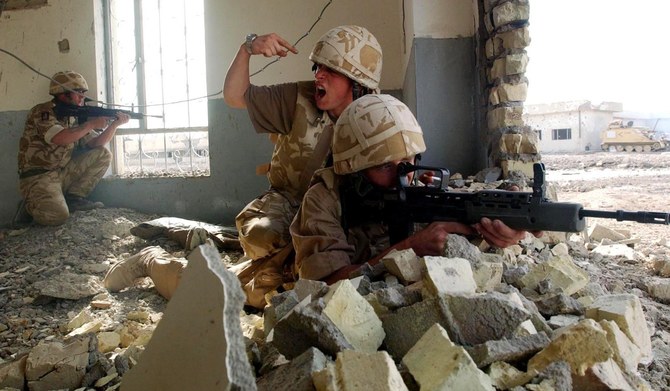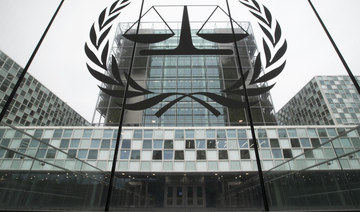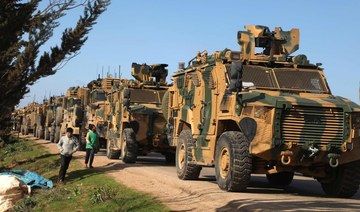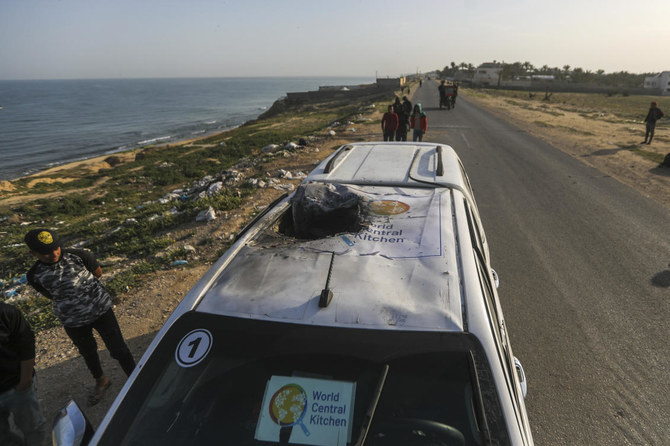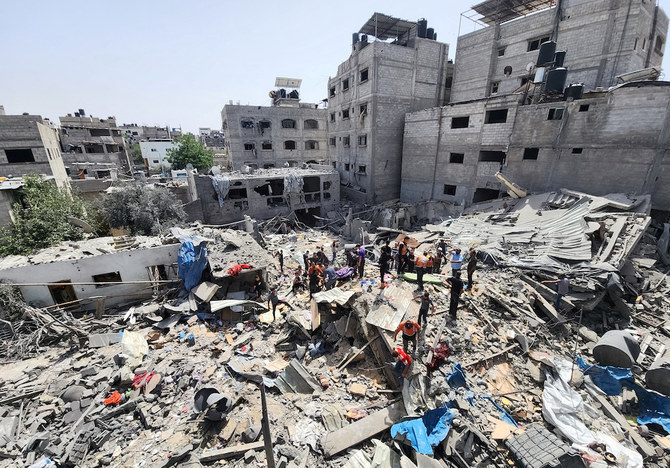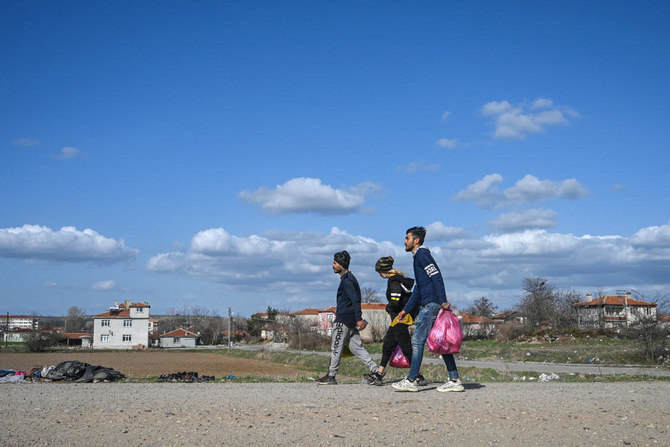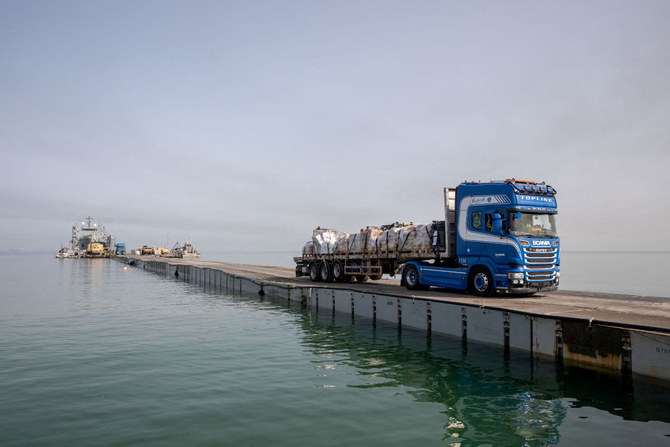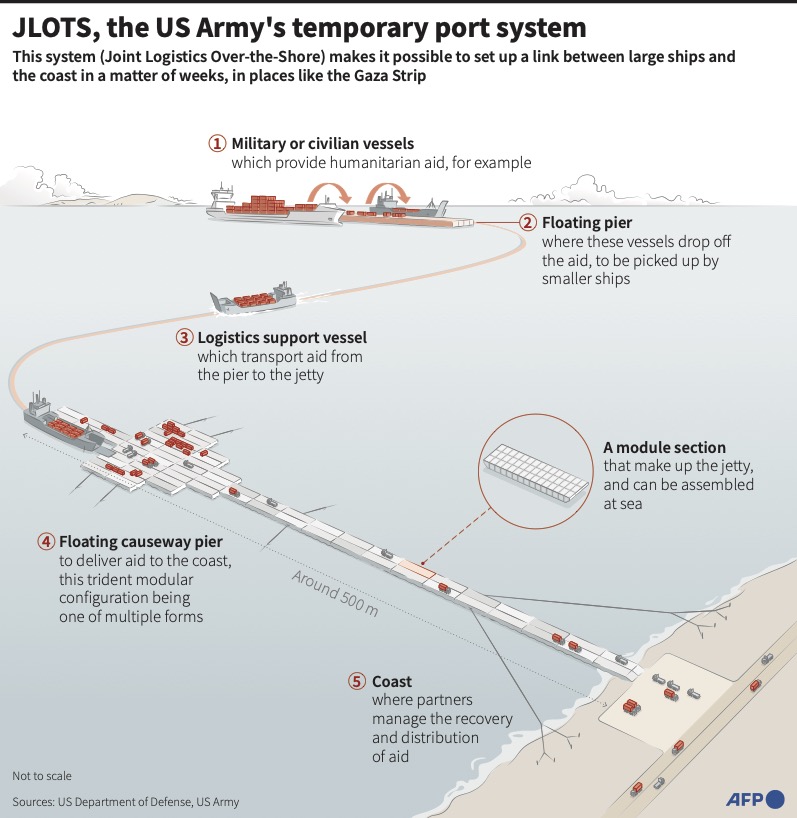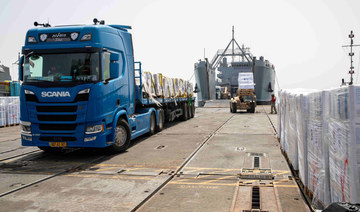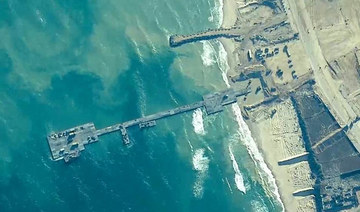LONDON: New legislation proposed in the UK could lead to changes in the prosecution of serving and former service personnel, which could hamper efforts to bring those accused of war crimes to justice.
The UK government is seeking to install a five-year limit on prosecutions for alleged crimes committed abroad while on active service, which could only be exempted in “exceptional circumstances.”
Among other things, it would render almost impossible any proposed cases against members of the UK’s armed forces for crimes supposedly committed while deployed during the occupation of Iraq or the US-led war in Afghanistan.
“This package of legal measures will reduce the unique pressure faced by personnel who perform exceptional feats in incredibly difficult and complex circumstances,” said Johnny Mercer, the UK’s minister for veteran affairs, who served three tours in Afghanistan with the British Army.
“This important next step has gone further than any other government before to protect military personnel who put their life in jeopardy to protect us.”
Peter Glenser QC, a barrister with extensive experience of cases involving UK personnel, said the legislation is being introduced against a backdrop of public sympathy.
“There has been significant public concern over repeated investigations into allegations made against Her Majesty’s Forces, sometimes many years after the events complained of have taken place, especially when there has been no new and compelling evidence,” he told Arab News.
“Concerns have been expressed over the credibility and reliability of evidence and witness statements that may be decades old, and the reopening of investigations that had already concluded,” he added.
“There may be a debate to be had about the length of the time limit, but the erosion of evidence over time presents difficulties. I don’t think this will impact international law, which requires a domestic investigation in the first place.”
Despite support from swathes of UK society for the new rules, they have still proved controversial, on both sides of the aisle.
Nicholas Mercer, the British Army’s chief legal advisor in Iraq during the 2003 invasion, said the move has even caused division within the ranks of the army itself, as it could incentivize human rights abuses and war crimes in future.
“Discipline and accountability are absolutely essential on the battlefield, and anything which might undermine this must be resisted,” he said.
“Officers are concerned that, not only do the proposals undermine international law, but also potentially encourage other rogue nations to follow suit,” he added.
“The British Army does not need or require any special protection from the law. A professional army complies with the rule of law, rather than circumvents it.”
Nicholas said there are other reasons to oppose the legislation. “If it’s known on the battlefield that British soldiers will not be held to account for crimes they have committed, then enemy combatants might be less inclined to hand themselves over as prisoners,” he added. “It will increase their resolve to fight.”
Cases brought against British soldiers in the UK have been rare, but they have commanded a significant amount of public interest in the past.
The case of Sgt. Alexander Blackman, pseudonymously referred to as “Marine A” during his trial, grabbed headlines in the national press when he was convicted in 2013 of the murder — later reduced to manslaughter on grounds of diminished responsibility — of a wounded Taliban fighter in Afghanistan’s Helmand province in 2011.
Even where no case has been brought, investigations have tended to be prolonged, leading to suggestions that UK personnel have been unfairly treated by the process.
Prominent human rights lawyer Phil Shiner, meanwhile, was struck off as a solicitor in 2017 after a disciplinary tribunal found him guilty of misconduct in pursuing cases against UK service personnel for allegations of wrongdoing — such as torture and mutilation — in Iraq, including knowingly bringing false claims and paying Iraqi middlemen to find people to provide fictitious eyewitness accounts.
At the time, Johnny referred to Shiner as a “modern-day traitor,” while former army chief Lord Richard Dannatt called for him to face criminal prosecution.
Leading UK tabloid The Sun reported Shiner’s case with the headline “Good riddance,” while the Daily Telegraph claimed he “ruined people’s lives.”
Shiner’s defenestration led to the closure of the UK’s Iraq Historic Allegations Team (IHAT) in 2017, as well as Operation Northmoor, which investigated historic allegations from the war in Afghanistan. But despite the scandal, there remains plenty of evidence of wrongdoing in both countries.
The “Marine A” case was just the latest, at the time, in a litany of allegations made against UK personnel that turned out to be true, including the murder in 2003 of Iraqi hotelier Baha Mousa.
He was apprehended and tortured by British soldiers in the city of Basra, before dying in what an inquest into his death called an “appalling episode of serious gratuitous violence.”
In 2017, a judge ordered the UK Ministry of Defense (MoD) to pay compensation to Abd Ali Hameed Ali Al-Waheed after he was detained and tortured by British soldiers in Iraq in 2007.
Several former soldiers, including in a book co-written by The Sun’s Political Editor Tom Newton Dunn, alleged that the British Army had “relaxed” the rules of engagement to allow the shooting of unarmed civilians suspected of being “dickers” (spotters) running surveillance on them, which, they said, led to the deaths of children and teenagers.
The soldiers were instructed, they said, that they would be protected from prosecution as long as they claimed that they believed their lives were at risk. The shooting of spotters is permitted in international law only when they engage in combat.
A joint investigation by The Times of London and the BBC’s “Panorama” documentary program in November 2019 claimed that the Shiner tribunal had been used as a pretext to close IHAT and Operation Northmoor prematurely.
A senior detective told “Panorama”: “The MoD had no intention of prosecuting any soldier of whatever rank he was unless it was absolutely necessary, and they couldn’t wriggle their way out of it.”
The MoD did not immediately respond to a request from Arab News for comment. The International Criminal Court, meanwhile, is currently conducting a preliminary inquiry into the conduct of British personnel in Iraq suspected of war crimes, with a view to opening a full investigation.



